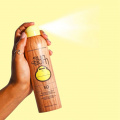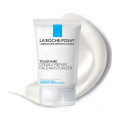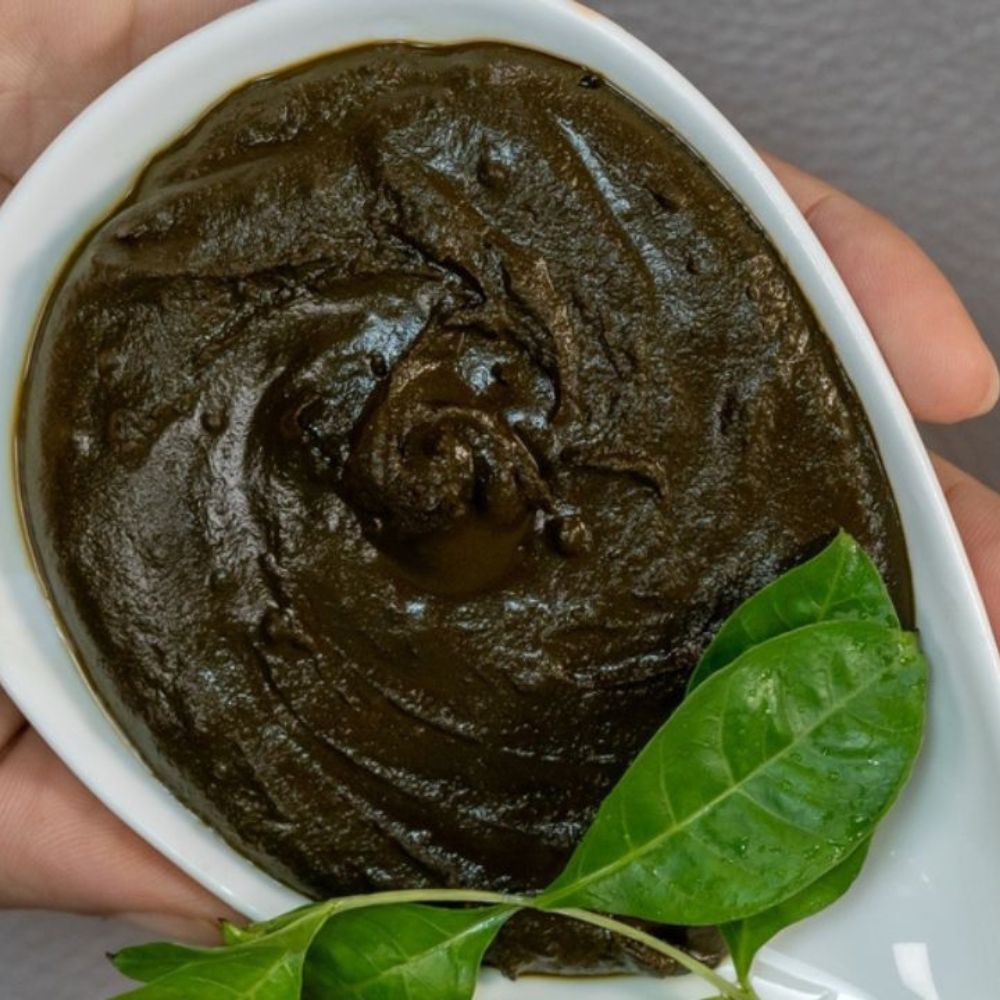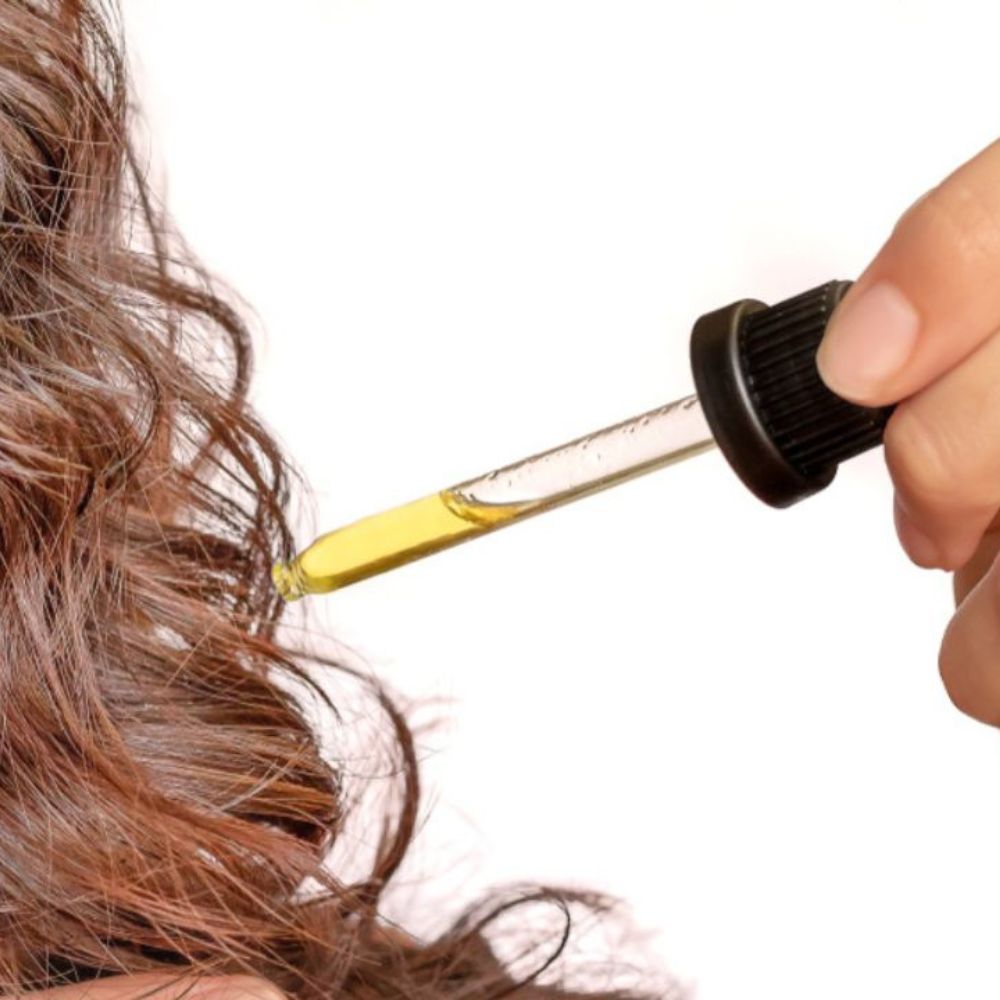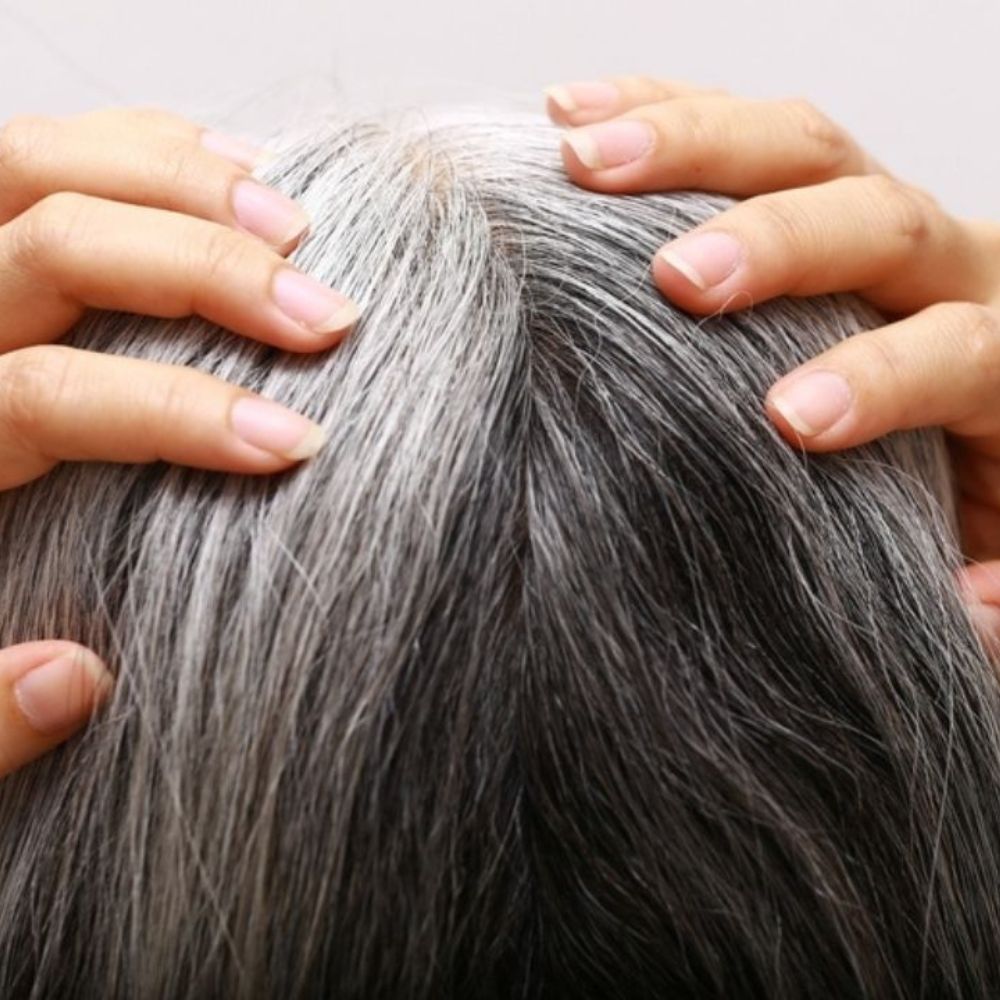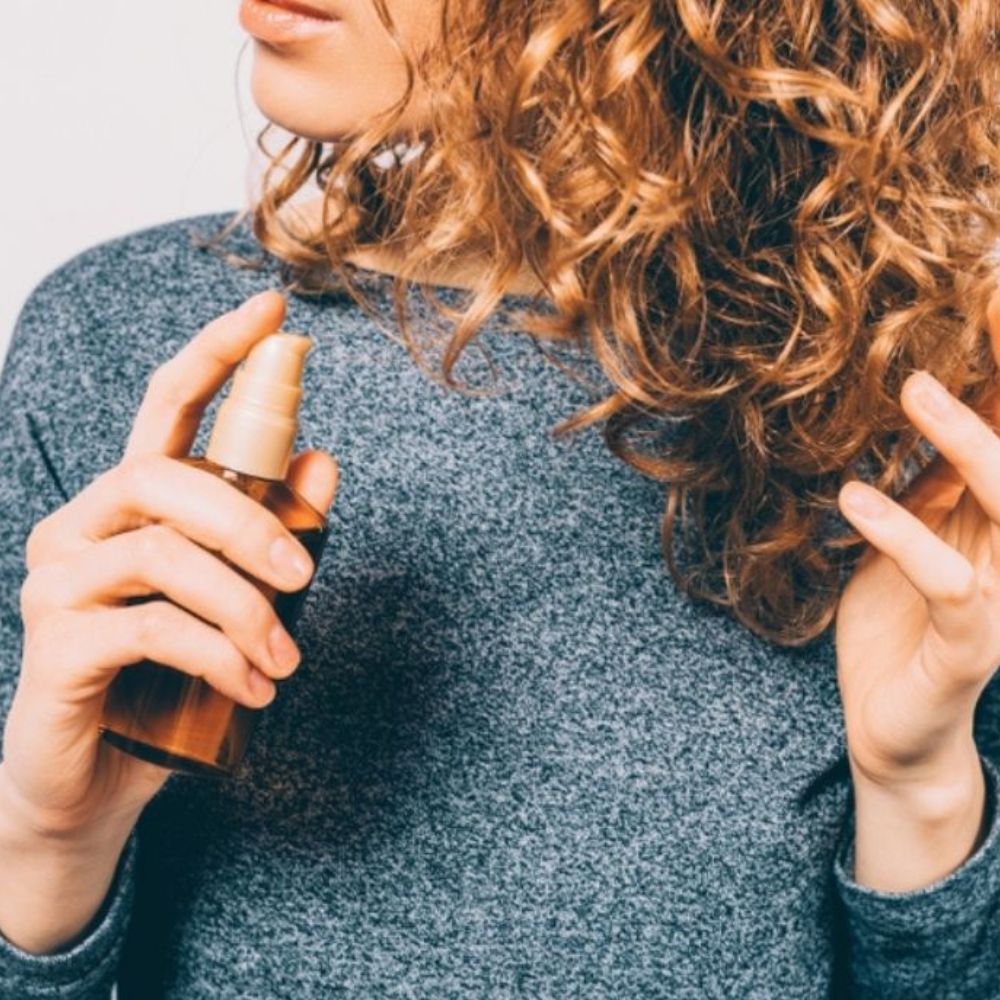How to Deep Condition Your Hair: A Complete Guide to Getting Smooth Locks
Tired of dealing with dull, frizzy hair? Here is a complete guide on how to deep condition your hair and revitalize your locks.
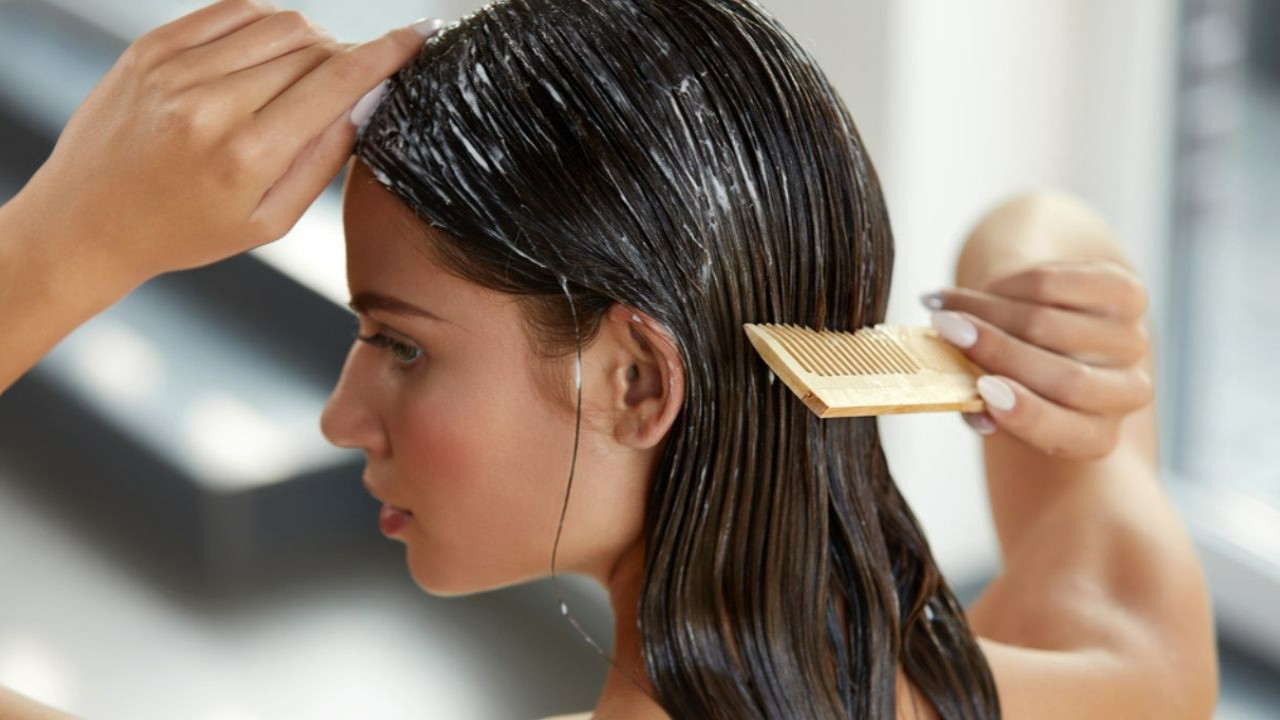
Getting Rapunzel-like tresses might seem like a dream far too etched for some people — especially for those who have dry, frizzy hair that’s hard to tame. However, dreams do come true when we work hard for them. Conditioners — one of the most loved haircare products have garnered a reputation for treating the frizziest of hair, making locks smoother and softer. But one need not always invest in a fancy product to treat their hair. Yes – DIY hair conditioners can work wonders too in boosting hair health. Understanding how to deep condition your hair in the comfort of your home can help you make your mane more manageable without indulging in too many products. From benefits to steps to perform deep conditioning treatment at home, the article delivers all that you need to keep your locks healthy and soft. Let’s get started!
What Does Deep Conditioning Do to Your Hair?

Most often, people with dry hair deal with unmanageable, coarse, and frizzy hair — all of which can be dealt with a quick at-home deep conditioning treatment. However, these treatments are not just confined to dry hair — beauty experts worldwide advise indulging in deep conditioning at home once every ten days.
Regular conditioners are usually infused with humectants and emollients — both of which help lock moisture in the hair, smoothen hair strands, and reduce moisture loss by creating a protective barrier around hair strands (1), (2), (3).
Deep conditioners work a bit differently from normal conditioners — they are mildly thicker and provide long-term benefits, as they penetrate deep into the strand to seal moisture into the hair shaft and improve texture and hair elasticity, making it easy to handle.
During the deep conditioner treatment, nourishing ingredients are used to coat every hair strand — these ingredients work synergistically to provide moisturization to the locks and also reduce the damage caused by heat styling products, thereby leading to healthier and stronger hair.
How to Deep Condition Your Hair at Home: Steps to Follow

Below are the steps to follow and make your hair silky-smooth:
1. Shampoo Your Hair: Cleanse your hair like you normally wound with a mild, gentle cleanser. It would be best if you use a shampoo devoid of harsh chemicals like sulfates, parabens, artificial fragrances, and drying alcohol – as these can strip away natural oils from hair (4). Rinse your hair thoroughly with lukewarm water, ensuring no residue is left behind.
2. Apply Your Deep Conditioner: The next step is to apply the deep conditioner to your hair shaft gently using your fingers. Comb through the conditioner swiftly to ensure every hair strand is properly coated.
3. Leave It on Your Hair: Allow the deep conditioner to absorb into your hair. Ideally, it's best to leave the conditioner on the hair for 20 to 30 minutes. But it varies from product to product, so read the packaging to follow the instructions.
4. Rinse It off: Wash your hair properly with cool water and pat dry. Don't rub your hair vigorously with a towel — let it dry on its own.
How to Prepare a Deep Conditioner at Home: 6 DIY Recipes

Below are some effective home remedies to try and make amazing deep conditioners at home:
1. Honey, Olive Oil, And Coconut Oil
Ingredients to Use:
- 1 cup of honey
- ½ cup of warm extra virgin coconut oil
- ½ cup of olive oil
How to Prepare
Mix both the oils with honey and apply it to your hair. Rinse it off with cool water after 20 minutes.
Benefits
Honey has potent humectant properties that nourish and moisturize the hair, making it easier to comb (5). According to another study, crude honey can help treat hair loss caused by seborrheic dermatitis (6). On the other hand, both olive and coconut oils exhibit emollient properties that seal the hair cuticles and boost hair moisturization (3).
2. Banana, Olive Oil, And Jojoba Oil

Ingredients to Use:
- 1 ripe banana
- 2 tablespoons of olive oil
- 1 tablespoon of jojoba oil
How to Prepare
Mash a banana with a fork and add both oils to it. Stir well to make a smooth paste, ensuring no lumps are there. Apply this liberally to your hair, covering each strand, and wear a shower cap to avoid ruining your clothes. Rinse this deep conditioning mask off after 30 minutes using cool water.
Benefits
Bananas, being rich in antimicrobial and antibacterial properties, can help treat dry, flaky scalp and even dandruff (7), (8). Being rich in vitamins and nutrients, it can give your hair the nourishment it deserves to stay soft and shiny (9), (10). Olive oil, as mentioned above, being an emollient adds moisturization to the hair (3). Coming to jojoba oil — it is also an emollient, which is why it's widely used as a conditioning agent. It prevents protein loss, protects the hair, and prevents hair breakage (11).
3. Shea Butter, Neem Powder, And Argan Oil
Ingredients to Use:
- 1 tablespoon of shea butter
- 2 tablespoons of argan oil
- 1 teaspoon of neem powder
How to Prepare
Melt shea butter and once it's done, pour argan oil in it. Now, add neem powder to the mixture and mix well. Coat your hair with this deep conditioner mask and leave it be for 15 to 20 minutes before rinsing it off.
Benefits
Shea butter is a commonly used beauty ingredient in haircare and skincare formulations, owing to unsaponifiable fractions that exhibit antioxidant and anti-inflammatory properties. It is also rich in fatty acids that help nourish the skin and hair deep within and protect the skin barrier to prevent damage (12), (13), (14). Last but not least, argan oil, too provides a host of benefits for hair — according to research, it effectively prevents hair damage by reducing protein loss in hair, which in turn boosts hair health (15).
4. Egg, Curd, And Coconut Oil
Ingredients to Use
- 2 egg yolk
- 1 tablespoon of curd
- 2 tablespoons of coconut oil
How to Prepare
Beat egg yolk and mix it with curd and coconut oil. Apply this evenly to your hair and cover your head with a shower cap. Let it rest for about 30 to 40 minutes and then wash it properly using cold water.
Benefits
Eggs being a rich source of protein are an amazing superfood that can help you get shinier locks (16), (17), (18). Curd, too, being a rich source of protein and lactic acid helps improve hair density and appearance (19), (20).
5. Avocado, Mango Butter, And Olive Oil
Ingredients to Use:
- ½ an avocado
- 2 tablespoons of olive oil
- 1 tablespoon of mango butter
How to Prepare
Melt mango butter using the double boiler method — take a pot and fill it with one to two cups of water. Add another pot and put mango butter in it, let it melt quickly (make sure to keep stirring the butter). Turn off the stove once done. Now mash the avocado to make a smooth paste and blend it with mango butter and olive oil. Put this as a conditioner to your hair and rinse it off after half an hour.
Benefits
Avocados are rich in amino acids and proteins that regenerate hair growth cells and seal cuticle cells, preventing hair breakage and leading to healthy hair growth (21). Mango butter, on the other hand, contains oleic acid along with other nutrients that have proven efficacy in being an excellent emollient and promoting skin smoothness for better skin protection (22), (23).
6. Coconut Milk, Glycerin, Vitamin E, And Aloe Vera

Ingredients to Use:
- 2 tablespoons of coconut milk
- 3 tablespoons of aloe vera gel
- 1 teaspoon of honey
- 1 teaspoon of glycerin
- 1 teaspoon of vitamin E oil
How to Prepare
Blend all the ingredients to form a paste of smooth and runny consistency. Work it through your hair and wear a shower cap to prevent your clothes from getting stained. Wash it off after 40 minutes with cool water.
Benefits
Coconut milk contains lauric acid which has proven its efficacy in providing the scalp with essential amino acids and vitamins (24). Aloe, a holy grail ingredient that promises to solve a lot of hair woes is loaded with vitamins and antioxidant properties that help treat dandruff, relieve inflammation, soothe dry scalp, and restore lost moisture in the scalp (25).
Glycerin is a potent humectant that promotes skin barrier function and improves hydration in dry skin conditions (26). Honey, too, is a fantastic ingredient for hair — its amazing emollient, soothing, and humectant properties keep the skin and hair soft while also balancing the pH levels (27). Last but not least, the special ingredient in this DIY hair conditioning mask is vitamin E, which is known for its antioxidant and moisturizing properties that not only calm dry skin but also protect it from UV damage (28).
So now that you have got the answer to the question, “How to deep condition your hair” let us now delve into another important topic — dos and don’ts of deep conditioning. Yes, no matter how beneficial deep conditioning is for your mane, doing it the wrong way can do more harm than good. Below are some pointers that will help you get the best results.
Dos And Don’ts to Follow After Deep Conditioning Your Hair at Home

Dos:
- Make It a Regular Practice: When it comes to haircare regimen, following it religiously often reaps the most benefits. Deep conditioning your hair just once will add softness and shine to your hair but if you don’t repeat it once every 7 to 10 days, your hair might not get repaired and healed from within. Hence, use a deep conditioning mask once a week to tame frizzy hair and get softer hair.
- Avoid Heat Styling Products: Right after the process, avoid the heat styling process at least for a day or two to retain the maximum benefits of the treatment. Indulging in heat styling treatments too often can cause surface damage, making hair dry, brittle, and more prone to breakage (29).
- Choose the Right Product/DIY Pack: Not everything suits everyone, so when using a deep conditioning product, go through the label to confirm if the formulation suits you or not. Similarly, when using DIY deep conditioning hair masks, steer clear of ingredients that don’t suit your skin type. For example, coconut oil is considered one of the best oils for hair, however, due to its high comedogenic rating, it might not suit people with oily and acne-prone scalp. Likewise, avoid adding essential oils to your DIY formulations if you have a sensitive scalp.
- Give Importance to After-care: After you condition your hair at home, it’s important to take care of your precious tresses by using mild haircare products and not indulging in heat styling treatments, as mentioned above.
By following these tips and tricks, you can get the best out of your deep conditioning treatment process.
Can We Condition Our Hair After Deep Conditioning It?

Deep conditioning in itself is a holistic approach to getting softer and smoother hair. The ingredients involved in creating a deep conditioner ensure that you get the utmost nourishment. So, it's not recommended to condition your hair once you are done with deep conditioning hair — however, if you don’t deep condition your hair regularly, then you may use your regular conditioner 3-4 days after the deep conditioning process is done.
What If We Deep Condition Our Hair Daily?

Excess of everything is bad — and so is the case with using deep conditioners. Over-moisturization can disrupt the natural pH levels as well as sebum production of your scalp, leading to oiliness and breakage. Hence, it's best to stick to once a week when it comes to deep conditioning your hair.
Who Should Deep Condition Their Hair?
Anyone can go through this process, however, it is more important for people with dry hair to get a deep conditioning treatment as their hair type is more prone to frizz and itchiness.
Conclusion
We hope our comprehensive guide on how to deep condition your hair helped you understand all the nitty gritty of conditioning treatment. Whether you want to pick a deep conditioning product to rejuvenate your hair or indulge in the comfort of making your hydrating hair mask — the results will be great once you choose a formula that caters to your hair type and concern. Make sure to be consistent in your approach and avoid using products laden with harsh chemicals to show some love to your hair. This way, you can rest assured that every day will be a happy hair day!
ALSO READ: How to Use Rosemary Oil for Hair Growth: Benefits, DIY Remedies, And Precautions





 JOIN OUR WHATSAPP CHANNEL
JOIN OUR WHATSAPP CHANNEL





































